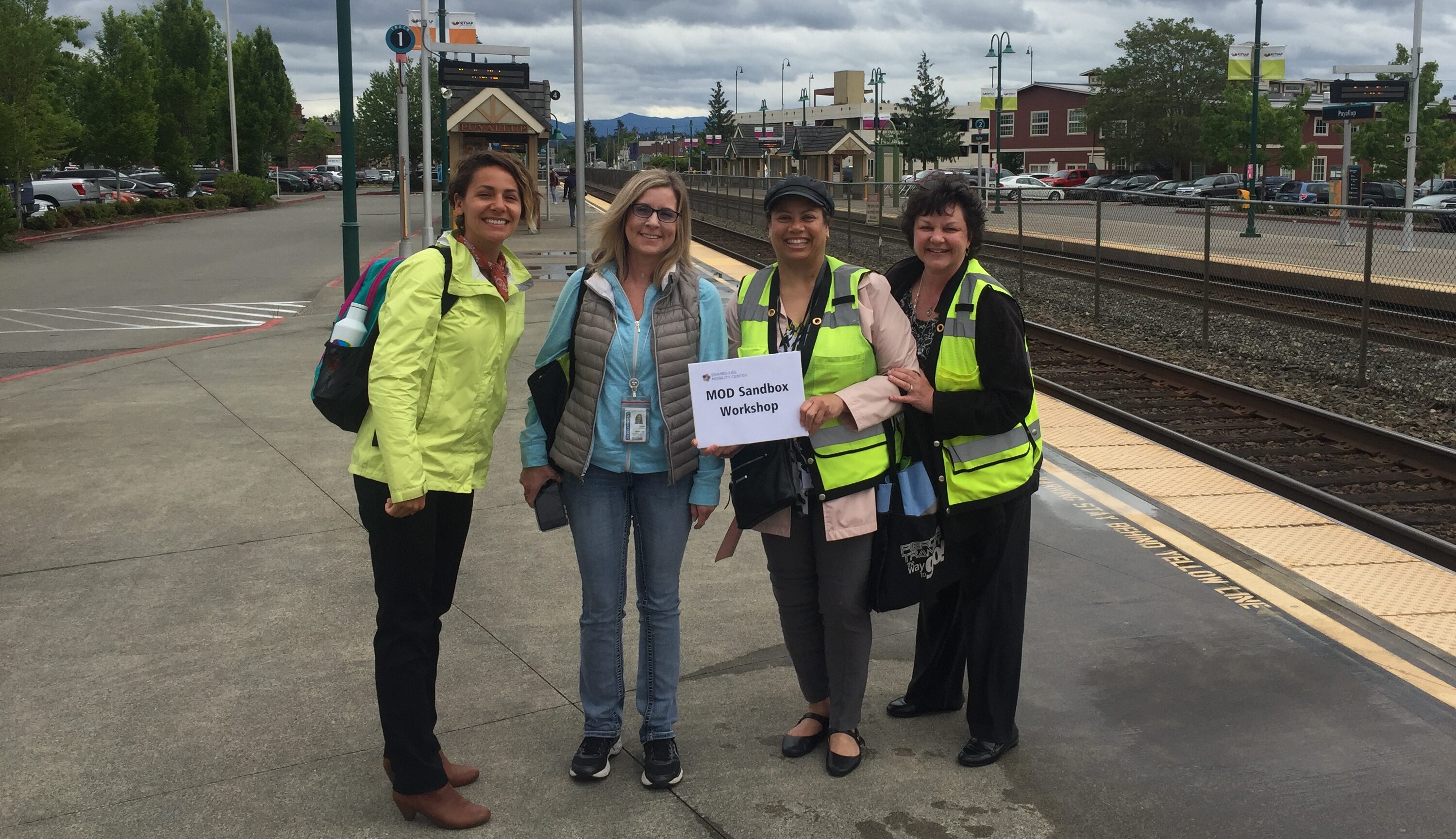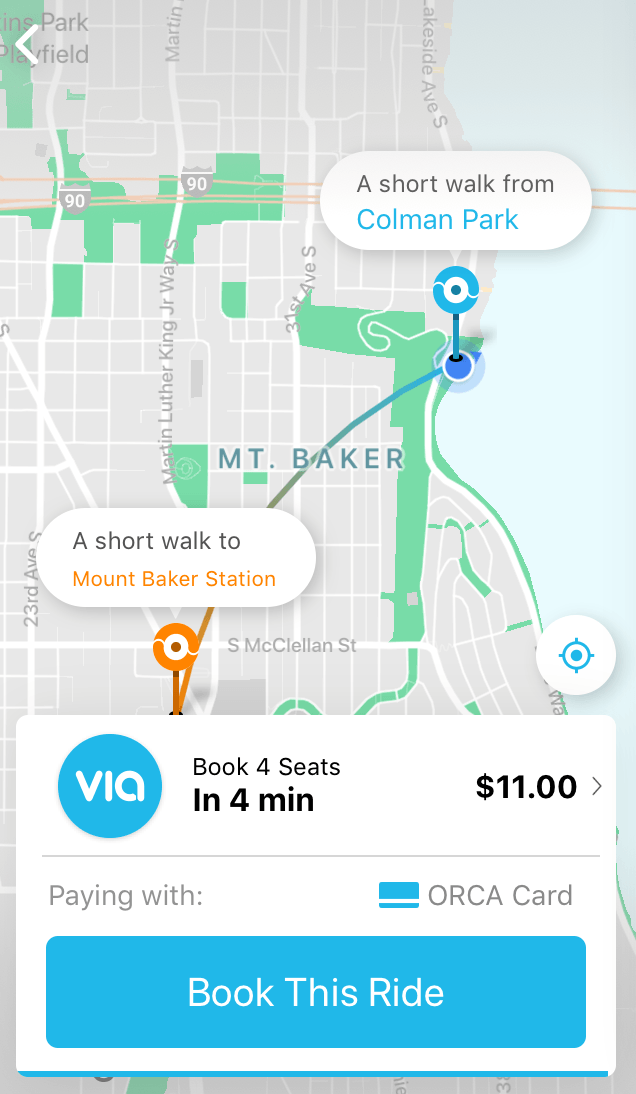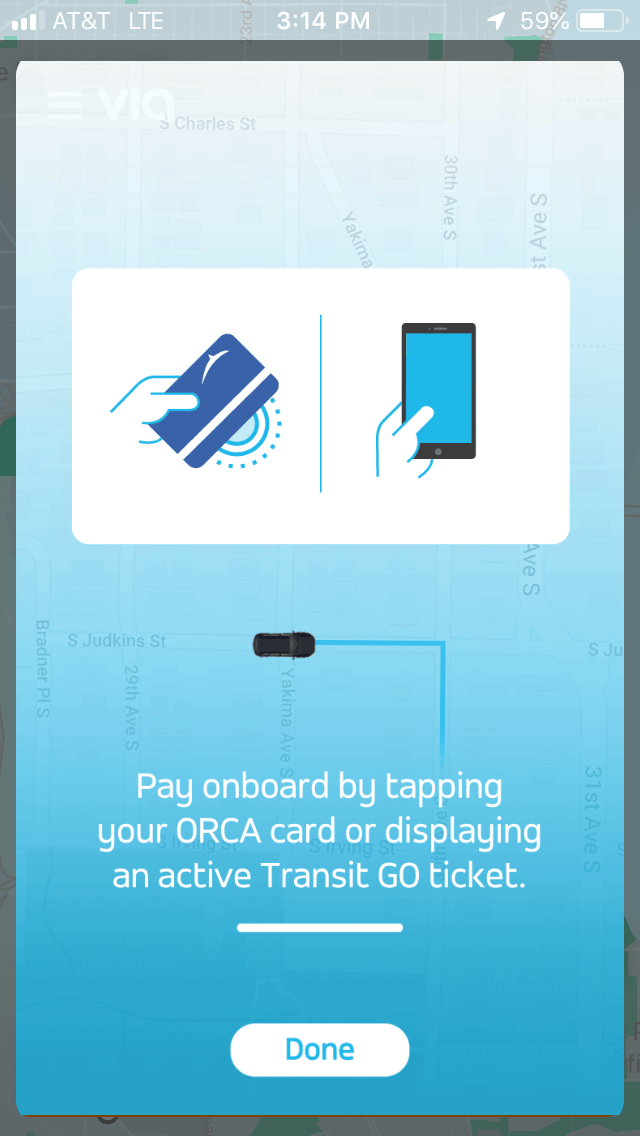 Workshop participants (and Pierce Transit employees) wait at the Puyallup Sounder Train Station for a Limited Access Connections Lyft ride to Bradley Lake Park.
Workshop participants (and Pierce Transit employees) wait at the Puyallup Sounder Train Station for a Limited Access Connections Lyft ride to Bradley Lake Park.
On May 14, MOD Sandbox grantees, mobility experts, and MOD practitioners in the public and private sectors met in Seattle, WA for an informational panel and discussion, field trips from Seattle to Tacoma to experience MOD Sandbox projects, and evening reception. Leadership from each of the host agencies, King County Metro, Sound Transit, and Pierce Transit, spoke about their vision and approach for delivering high-quality service to their communities.
Hands-on workshops out in the field are a great way to observe, discuss, and overcome challenges in MOD projects. While we can evaluate projects based on data from surveys and trips, an on-site visit offers additional insights not only about how a MOD service operates but by putting the attendees in the shoes of everyday riders.
A panel discussion titled Risk, Liability, and Insurance in the Age of MOD started the day. The panelists were Allison Frey of King County, Greg Kildare of Norfolk Southern (formerly of LA Metro), and Michael Day of Aon. The session was moderated by Laura Fraade-Blanar of the RAND Corporation who touched on fundamental insurance questions, such as, “who is ultimately responsible? and, “what are the appropriate insurance levels needed?”
The overwhelming “answer” was that insurance for MOD partnerships is not business as usual since new mobility companies often have different business and operational models compared to public transit agencies and traditional transit operators. Panelists generally agreed that the two parties will have to come together to share costs and risks through novel agreements around insurance and indemnity provisions. While issues are still being worked out, the panel felt that insurance companies need to respond better to new technology solutions and that additional regulatory control, legislation, and court decisions would help clarify uncertainties over time.
Access the full summary of, “Risk, Liability, and Insurance in the Age of MOD.”
Next was a presentation of the Mobility Data Specification (MDS) from Evan Costagliola of Nelson\Nygaard. Developed by the City of Los Angeles, MDS helps facilitate and formalize two-way data-sharing between local governments and mobility service providers. MDS provides API and data standards for municipalities to ingest, analyze, and manage service-provider data, particularly from micromobility operators, at scale, and also allows municipalities to communicate information back to the operators. Important issues, such as refining privacy protocols and finding the right interplay between data standards and policy, remain, but MDS could represent one type of framework for how mobility operators share data with local governments.
Participants used the Via app and their ORCA fare card to travel their “last mile” from Link Light Rail stations to their field trip destinations.
Workshop participants then broke into small groups to experience the “Via to Transit” and Pierce County “Limited Access Connections” MOD Sandbox projects. The field trips led the participants from Seattle to various locations across King and Pierce Counties, then eventually to the beautiful Museum of Glass in Tacoma, all on transit and the MOD Sandbox first/last-mile services through Via (King County) and Lyft (Pierce County). Experiencing these innovative pilots allowed experts to take away lessons for their own projects and collectively share knowledge for everyone’s benefit.


